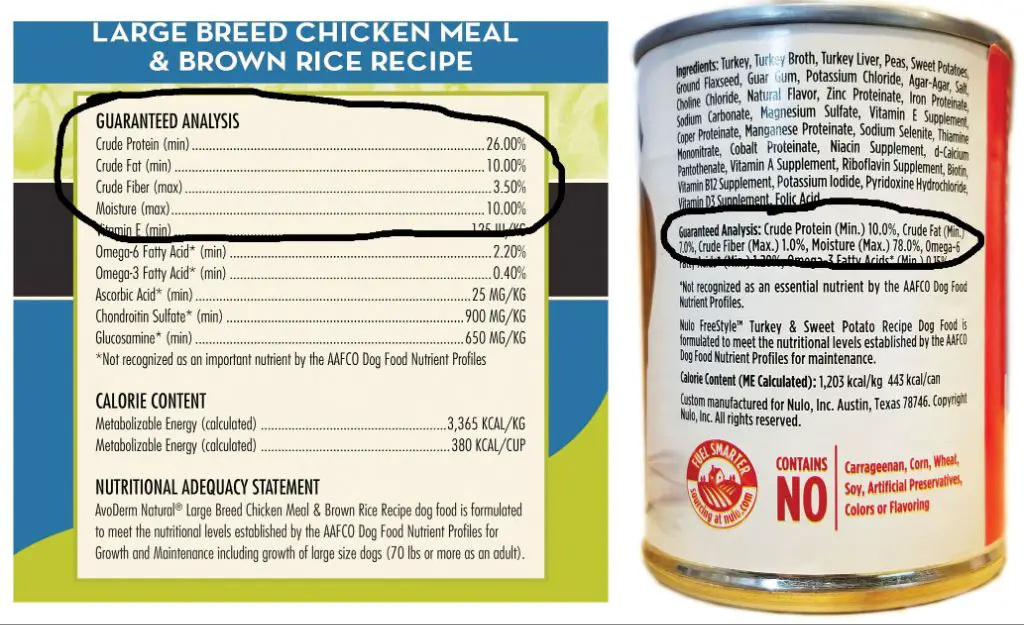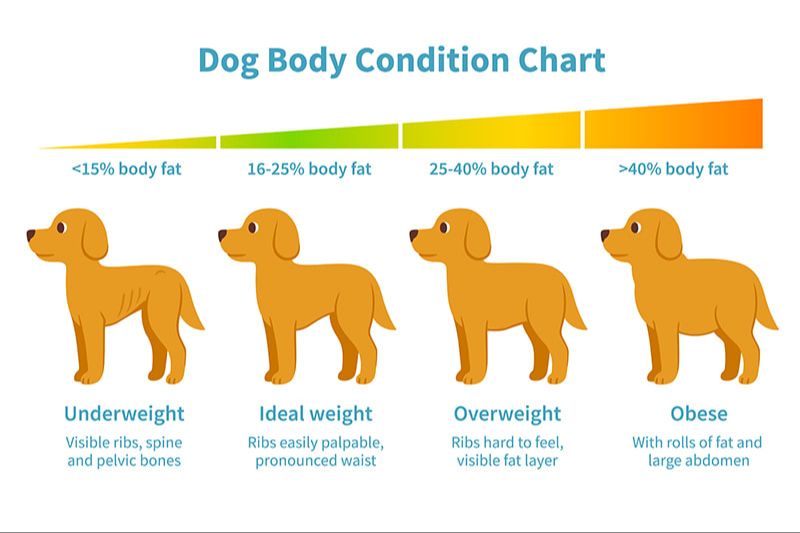Introduction
Pet owners want the best for their four-legged friends. We look for dog foods that promise complete nutrition and health benefits. But many commercial dog foods may not be as healthy as they seem. With ultra-processed ingredients and added sugars, some dog foods can negatively impact your pet’s wellbeing over time.
In fact, studies show the average dog food contains far more sugar than wolves eat in the wild – up to 10 times as much! Excess sugar can lead to obesity, dental issues, diabetes and more. Many dog foods are also filled with filler ingredients like corn and wheat instead of high quality proteins.
This reveals an alarming truth – much of the dog food sold today is optimized for highly processed and inexpensive production, not canine health. As caring pet parents, we need to look past the marketing claims on the bag. While no dog food is perfect, making informed choices can go a long way in supporting our pets’ lifelong wellbeing.
History of Commercial Dog Food
The widespread use of commercial dog food dates back to the mid-20th century. Before then, most pet dogs were fed leftover table scraps and locally available food. The first commercially prepared dog food debuted in England in 1860, but it didn’t take off in popularity until the 1950s and 1960s.
Dog food companies began heavily marketing prepared foods as being scientifically formulated and nutritionally complete for pets. The convenience and low cost appealed to many pet owners, and commercial dog food sales skyrocketed. By the 1990s, the majority of dogs in developed countries were fed primarily on prepared commercial foods.
Early commercial dog foods contained basic ingredients like meat meal, bone meal, grains, and vegetable scraps. However, the ingredients and formulations have changed dramatically over the decades. Many modern dog foods are packed with refined grains, additives, artificial preservatives and flavors. Controversial ingredients like rendered fats, animal by-products, and corn have also become commonplace.
The result is highly processed dog food that can negatively impact canine health and shorten lifespans. However, some companies have recently made an effort to return to more natural, minimally processed formulas using quality ingredients.
Common Ingredients in Dog Food
Many commercial dog foods contain concerning ingredients that provide little nutritional value and may even be harmful to dogs. Some of the most common questionable ingredients include:
Meat By-Products: This refers to parts of slaughtered animals not deemed fit for human consumption, such as bones, blood, intestines, lungs, spleen, kidneys, etc. While not inherently unhealthy, quality can vary greatly. They lack muscle meat and may have very little nutritional value.
Fillers: Cheap fillers like corn and wheat are commonly used. They provide calories but minimal nutrients. Some dogs have difficulty digesting them. They can lead to allergies and other health issues.

Artificial Preservatives: Preservatives like BHA, BHT and ethoxyquin help extend shelf life. However, some studies link them to cancer and organ damage. Natural preservatives like vitamin E are safer alternatives.
Health Concerns with Common Ingredients
Many common ingredients in commercial dog foods can cause health issues for our canine companions. Some of the biggest concerns involve digestive problems, allergies, and obesity.
Digestive troubles like vomiting, diarrhea, constipation, and gas are very common in dogs eating commercial kibble or canned foods. The highly processed ingredients are hard for dogs to digest properly. Artificial additives like colors, flavors, and preservatives can also irritate the digestive tract. The high carbohydrate content in many dog foods may lead to gas and loose stools as well.
Allergies and food sensitivities are also quite common these days. Some dogs are allergic to proteins like chicken, beef, or fish which are primary ingredients in most dog foods. Grains like corn, wheat, and soy are other common allergens. Symptoms of food allergies in dogs include itchy skin, chronic ear infections, and skin rashes. An elimination diet is usually needed to identify the allergen.
With many dog food formulas containing 30% or more fat, plus high amounts of carbohydrates, obesity is reaching epidemic proportions for dogs. An estimated 50% of dogs in the United States are overweight or obese. Carrying excess weight puts them at risk for joint issues, heart disease, and diabetes. Owners need to carefully monitor their dog’s weight and adjust food portions or switch to a healthier formula if needed.

Veterinary Viewpoints on Dog Food
Many veterinarians have expressed concerns about the health effects of commercial dog foods. Dr. Sarah Johnson, a veterinarian with over 20 years of experience, states that “I’m very worried about the high carbohydrate content of most dog foods on the market. Obesity, diabetes and arthritis are rampant in dogs, and I believe poor diets play a huge role.”
Dr. Michael Brown, owner of a veterinary clinic, reports seeing “a dramatic increase in cases of nutritional deficiency diseases, like heart disease from taurine deficiency, over the last decade. These diseases were very rare when dogs ate primarily meat and table scraps.”
The president of the American Veterinary Medical Association, Dr. Jessica Wong, cautions dog owners that “While some commercial dog foods meet minimum nutritional requirements, the ingredients are often of low quality. I advise my clients to closely scrutinize labels and avoid fillers.”
In summary, many vets are speaking out about concerning nutritional trends that may be linked to commercial dog food diets high in carbohydrates and fillers yet lacking in high quality animal products. They are seeing more cases of obesity, diabetes, arthritis and nutritional deficiency diseases that were less common when dogs ate diets higher in animal products.
Signs Your Dog’s Food is Unhealthy
There are several signs that may indicate your dog’s food is unhealthy or lacking proper nutrition. Some of the most common signs include:
Itching and Skin Irritation
If your dog is constantly itching, licking, biting, or chewing at their skin, it could be a sign of a food allergy or sensitivity. The chemicals, preservatives, artificial colors, or low-quality ingredients in some dog foods can cause skin irritation or allergic reactions in dogs.
Digestive Upset

Diarrhea, vomiting, gas, and other digestive issues can develop from your dog eating poor quality or tainted food. Artificial flavors, additives, and hard-to-digest ingredients may upset your dog’s stomach. Low quality ingredients can also lead to gastrointestinal inflammation or make it difficult for your dog to properly absorb nutrients.
Weight Gain
Many low-quality dog foods are packed with fillers, artificial flavors, and ingredients with little nutritional value. All these excess carbohydrates and calories without proper protein or fiber can easily lead to obesity in dogs. Unhealthy weight gain puts dogs at risk for other health issues.
Low Energy
A lack of essential fatty acids, vitamins, and minerals in your dog’s diet can result in low energy levels. They may seem lethargic, sleep more than usual, or have difficulty exercising as normal. Poor nutrient absorption from low-quality foods leads to deficiency symptoms.
Tips for Choosing Healthier Food
When selecting a healthy dog food, one of the most important things to do is look closely at the ingredients list. High quality proteins like chicken, salmon, lamb, and eggs should ideally be at the top of the list. Whole grains like brown rice and oats are better than refined grains like corn or wheat. Fruits, veggies, and oils provide important vitamins. Avoid artificial preservatives, colors, and flavors.
Consult with your veterinarian for advice on your dog’s unique nutritional needs based on age, size, activity level, and breed. Your vet can help guide you in choosing a high quality food that will keep your dog healthy.
When switching foods, do so gradually over the course of 5-7 days. Slowly incorporate more of the new food each day while decreasing the old. This allows time for your dog’s digestive system to adapt to the change. Drastic changes in diet can cause upset stomach, diarrhea, and other problems.
Making Your Own Dog Food
Many dog owners are choosing to make their own dog food at home. This allows you to control the ingredients and avoid processed foods. There are some important considerations when making your own dog food.
Recipes and Guidelines
A homemade dog food recipe should contain a balance of ingredients. A good basic recipe includes:
- A protein source like chicken, beef, turkey or fish
- Starchy vegetables like sweet potatoes or peas
- Leafy greens like spinach or kale
- A small amount of grains like rice, barley or oats (optional)
- A healthy fat like olive oil or salmon oil
- A supplement like bone meal for calcium
The exact amounts will vary based on your dog’s size and activity level. Consult your vet for specific guidelines. Recipes should be cooked thoroughly and stored properly.
Benefits over Commercial Food
Some benefits of homemade dog food include:
- Control over ingredients
- Avoidance of fillers, preservatives and artificial flavors
- Potential for health benefits like shinier coats and reduced allergies
- Knowledge of what your dog is eating
- Ability to customize for your dog’s needs
Ensuring Nutritional Balance
It’s important to consult your veterinarian to make sure your dog’s homemade diet is nutritionally complete. You may need to add a multivitamin or other supplements. Having recipes formulated by a canine nutritionist can also help ensure balance. Monitor your dog’s health and energy on the new diet. Making your own dog food takes effort but can have great benefits when done properly.
Common Myths About Dog Food
There are several common myths and misconceptions when it comes to dog food and canine nutrition. One of the biggest myths is that dogs are omnivores like humans. In reality, dogs are facultative carnivores, meaning they thrive on a meat-based diet but can utilize plant material as well. While dogs can digest some fruits and vegetables, they lack the physiology and enzymes to properly break down and absorb nutrients from plants.
Another common myth is that premium, natural and organic dog foods are always healthier. However, these descriptors alone don’t guarantee the food is nutritionally balanced. Just because an ingredient is natural doesn’t mean it’s good for your dog. There are also many premium dog foods full of non-nutritive fillers.
It’s also a myth that dogs need variety in their diets. Unlike humans, dogs don’t need variety for nutritional completeness. Dogs have specific nutritional requirements that are best met through high quality proteins, fats, and minimal carbohydrates. Constantly changing proteins can actually lead to gastrointestinal issues in some dogs.
Perhaps the biggest myth is that commercial kibble provides complete and balanced nutrition. While some kibbles meet minimum standards, they are still highly processed and contain synthetic additives. An ancestral or homemade whole food diet is optimal, as it provides natural sources of minerals and nutrients dogs need.

Conclusion
In this article, we explored the potential health impacts of common commercial dog food ingredients. While convenient and affordable, many mass-produced dog foods contain fillers, by-products, and additives that may negatively affect a dog’s health long-term.
Signs your dog’s food could be unhealthy include digestive issues, skin problems, lack of energy, weight gain, and more. To promote optimal nutrition, look for dog foods with quality proteins, whole foods, and limited processing. Consulting your veterinarian can help determine if your dog may benefit from a diet change or homemade recipes.
Providing proper canine nutrition tailored to your dog’s needs and age is one of the most important things you can do as a pet owner. With care and research, you can likely find or make affordable dog food that will keep your four-legged friend healthy, happy, and energetic.